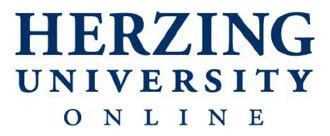Would you like to pursue a career in financial recording, reporting, auditing, or management? You could gain the requisite education by participating in a program such as Herzing University's Bachelor of Science in Accounting. To learn more about program requirements, read on.
<h2 id="section---FrequentlyAskedQuestions">Frequently Asked Questions</h2>
<h3 id="section---WhatKindOfProgramIsIt">What Kind of Program Is It?</h3>
<p>Herzing University's Bachelor of Science in Accounting program is designed to provide you with the skills to provide financial and accounting services to companies and individuals. The program is structured so as to teach you about many aspects of the profession, including tax preparation, investment management, and retirement planning. Your curriculum is designed to address topics such as cost accounting, taxation, financial accounting systems, auditing, and computerized accounting databases. You will also have the chance to examine the ramifications of the U.S.'s impending conversion from GAAP to IFRS accounting standards. This bachelor's degree program is offered online and on campus.
</p>
<h3 id="section---WhatAreThePrerequisites">What Are the Prerequisites?</h3>
<p>If you are interested in enrolling in this program, you should be trustworthy and possess good critical-thinking skills. You should also be an effective communicator who enjoys creating and reading large amounts of financial data. Though requirements may vary, you should have earned a high school diploma or equivalent.
</p>
<h3 id="section---WhatAreTheCourseRequirements">What Are the Course Requirements?</h3>
<p>This 123-semester credit hour program consists of several required components, including core management and accounting courses. Below, you will find a listing of required subjects.
</p>
<p><u>Required Management Core Courses</u>
</p>
<p />
<table border="1"><tr><th>Course Code </th><th>Course Title</th></tr>
<tr><td>AC 107 </td><td> Accounting I</td></tr>
<tr><td>AC 220 </td><td> Finance</td></tr>
<tr><td>BU 106 </td><td> Introduction to Management</td></tr>
<tr><td>BU 204 </td><td> The Digital Firm and Business Communications</td></tr>
<tr><td>BU 206 </td><td> Business Law I</td></tr>
<tr><td>BU 220 </td><td> Principles of Marketing</td></tr>
<tr><td>BU 302 </td><td> Leadership and Organizational Behavior</td></tr>
<tr><td>BU 327 </td><td> Business Ethics</td></tr>
<tr><td>BU 345 </td><td> Project Management</td></tr>
<tr><td>BU 407 </td><td> Quantitative Decision Making</td></tr>
<tr><td>EC 111 </td><td> Principles of Microeconomics</td></tr>
<tr><td>EC 121 </td><td> Principles of Macroeconomics</td></tr>
</table><p><u>Required Courses in Accounting</u>
</p>
<p />
<table border="1"><tr><th>Course Code </th><th>Course Title</th></tr>
<tr><td>AC 110 </td><td> Payroll Accounting</td></tr>
<tr><td>AC 212 </td><td> Taxation I</td></tr>
<tr><td>AC 216 </td><td> Accounting II</td></tr>
<tr><td>AC 221 </td><td> Taxation II</td></tr>
<tr><td>AC 306 </td><td> Managerial Cost Accounting</td></tr>
<tr><td>AC 313 </td><td> Intermediate Accounting I</td></tr>
<tr><td>AC 330 </td><td> Intermediate Accounting II</td></tr>
<tr><td>AC 335 </td><td> Computerized Accounting</td></tr>
<tr><td>AC 413 </td><td> Advanced Financial Accounting I</td></tr>
<tr><td>AC 416 </td><td> Governmental and Non-Profit Accounting</td></tr>
<tr><td>AC 418 </td><td> Auditing</td></tr>
<tr><td>AC 426 </td><td> Advanced Financial Accounting II</td></tr>
<tr><td>BU 310 </td><td> Business Law II</td></tr>
<tr><td>BU 421 </td><td> Operations Management</td></tr>
</table><p><u>Open Elective Courses</u>
</p>
<p>You must take at least 3-semester credit hours of open elective courses.
</p>
<p><u>Required Capstone or Internship</u>
</p>
<p />
<table border="1"><tr><th>Course Code </th><th>Course Title</th></tr>
<tr><td>BU 491 </td><td> Capstone Project</td></tr>
<tr><td>BU 495 </td><td> Internship</td></tr>
</table><p><u>Required Courses in General Education</u>
</p>
<p>You will be required to complete a minimum of 37-semester credit hours in general education classes.
</p>
<p><u>Personal and Professional Development Courses</u>
</p>
<p />
<table border="1"><tr><th>Course Code </th><th>Course Title</th></tr>
<tr><td>PD 121 </td><td> Professional Development I</td></tr>
<tr><td>PD 202 </td><td> Professional Development II</td></tr>
<tr><td>PD 214 </td><td> AS / AAS / BS Diploma Internship Preparation</td></tr>
</table><h3 id="section---WhatCouldIDoAfterIGraduate">What Could I Do After I Graduate?</h3>
<h4 id="section---CareerOpportunities">Career Opportunities</h4>
<p>When you complete your studies, you could seek opportunities with accounting agencies, financial firms, banks, businesses, or government agencies. You could pursue entry-level positions such as:
</p>
<ul><li>Accounts Payable Clerk
</li><li>Accounts Receivable Clerk
</li><li>Tax Preparer
</li><li>Account Representative
</li></ul><p>The field of accounting encompasses several areas of specialty. After you gain some measure of experience or attain a CPA certification, you might follow career paths such as the following:
</p>
<ul><li>Certified Public Accountant
</li><li>Management Accountant
</li><li>Government Accountant
</li><li>Internal Auditor
</li><li>Financial Advisor
</li><li>General Manager
</li></ul><h4 id="section---AdvancedDegrees">Advanced Degrees</h4>
<p>If your goal is to pursue a position of even greater responsibility and accountability, you may want to earn your master's degree. At the graduate level, you could take courses in accounting research, negotiations, forensic accounting, or financial risk management. You could research advanced educational programs such as:
</p>
<ul><li>Master of Accounting
</li><li>Master of Accountancy
</li><li>Master of Business Administration with an accounting major</li></ul>



.svg)


